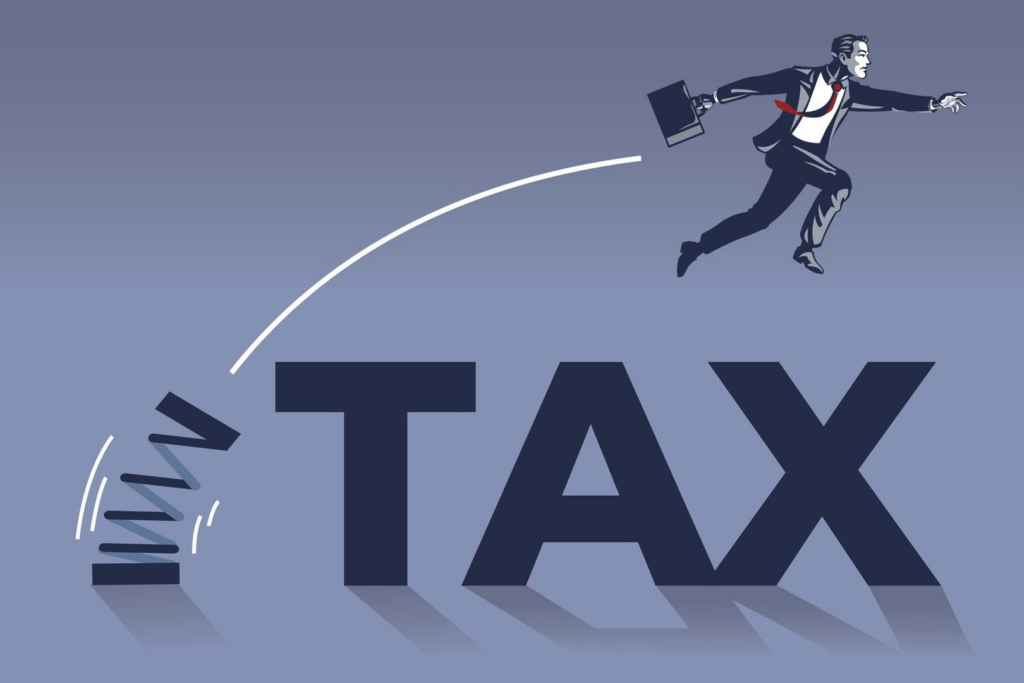
Corporate tax plays a pivotal role in the financial landscape of businesses worldwide, serving as a significant source of revenue for governments while shaping corporate decision-making and strategic planning. Understanding corporate tax rates, deductions, incentives, and tax planning strategies is essential for businesses to optimize their tax liabilities, enhance profitability, and maintain compliance with tax laws. In this comprehensive guide, we will delve into the intricacies of corporate tax, providing examples of research on corporate tax rates, deductions, incentives, and tax planning strategies to empower businesses in navigating the complex tax environment effectively.
Corporate Tax Rates
Corporate tax rates vary by country and jurisdiction, impacting the amount of tax businesses are required to pay on their profits. The level of corporate tax rates is influenced by factors such as economic conditions, government fiscal policies, and international tax competition. Let’s explore examples of corporate tax rates in different countries:
United States: The corporate tax rate in the United States is levied at the federal level and varies depending on the taxable income of corporations. As of the 2022 tax year, the federal corporate tax rate is a flat 21% for C corporations, following the enactment of the Tax Cuts and Jobs Act (TCJA) in 2017.
State corporate tax rates may vary, with some states imposing additional taxes on corporate income. Combined federal and state corporate tax rates can range from approximately 25% to 30% or higher.
United Kingdom: In the United Kingdom, the corporate tax rate applies to the taxable profits of limited companies and certain other entities. As of the 2022 tax year, the main rate of corporation tax in the UK is 19% on profits over £50,000. A small profits rate of 19% applies to profits up to £50,000. The UK government has announced plans to increase the main rate of corporation tax to 25% from April 2023 for companies with profits exceeding £250,000.
Singapore: Singapore has a territorial tax system, where only income derived from Singapore is subject to corporate tax. The corporate tax rate in Singapore is among the lowest in the world, with a flat rate of 17% on taxable income. In addition to competitive tax rates, Singapore offers various tax incentives and exemptions to attract investment and promote economic growth.
Corporate Tax Deductions
Corporate tax deductions allow businesses to reduce their taxable income by deducting certain expenses incurred in the course of business activities. Deductible expenses can include operating costs, capital expenditures, interest payments, and employee compensation. Let’s examine examples of corporate tax deductions available to businesses:
Operating Expenses: Businesses can deduct ordinary and necessary expenses incurred in the operation of their business, such as rent, utilities, salaries, wages, advertising, and supplies. For example, a manufacturing company can deduct the costs of raw materials, production equipment, factory rent, and utilities as operating expenses.
Capital Expenditures: Capital expenditures, such as investments in property, plant, and equipment (PP&E), are typically depreciated or amortized over time for tax purposes. Businesses can deduct depreciation expenses or claim capital allowances on qualifying assets, spreading the cost of investment over their useful lives.
Interest Payments: Interest payments on business loans, lines of credit, and other forms of debt are generally deductible as business expenses. For example, a company can deduct interest expenses on a business loan used to finance expansion projects, acquisitions, or working capital needs.
Employee Benefits: Businesses can deduct the costs of providing employee benefits such as health insurance, retirement plans, stock options, and fringe benefits. These deductions help businesses attract and retain talent while providing valuable benefits to employees.
Corporate Tax Incentives

Corporate tax incentives are designed to encourage specific behaviors, investments, and activities that benefit the economy, environment, or society as a whole. Governments offer tax incentives to businesses as a means of stimulating economic growth, fostering innovation, and promoting social objectives. Let’s explore examples of corporate tax incentives available to businesses:
Research and Development (R&D) Tax Credits: Many countries offer R&D tax credits to incentivize businesses to invest in research and development activities aimed at innovation and technological advancement. Businesses can claim tax credits or deductions for qualified R&D expenses, such as wages, materials, and equipment used in R&D projects.
Investment Tax Credits: Investment tax credits are available to businesses that make qualifying investments in certain industries, sectors, or regions. For example, governments may offer investment tax credits for investments in renewable energy projects, infrastructure development, or economically distressed areas.
Export Incentives: Export incentives are designed to promote international trade and export activities by providing tax breaks or subsidies to businesses engaged in exporting goods and services. Governments may offer tax incentives such as tax exemptions, reduced tax rates, or tax refunds for export sales and related activities.
Green Tax Incentives: Green tax incentives aim to encourage businesses to adopt environmentally friendly practices, reduce carbon emissions, and invest in renewable energy and sustainable technologies. Businesses may qualify for tax incentives such as tax credits, accelerated depreciation, or tax deductions for investments in green initiatives and eco-friendly projects.
Corporate Tax Planning Strategies
Corporate tax planning involves proactively managing tax liabilities and optimizing tax outcomes through strategic planning, structuring, and compliance. Effective tax planning can help businesses minimize tax burdens, maximize tax savings, and enhance overall financial performance. Let’s discuss examples of corporate tax planning strategies employed by businesses:
Entity Structure Optimization: Businesses can optimize their entity structure to minimize tax liabilities and take advantage of tax incentives and deductions available to different types of entities. For example, businesses may choose to operate as C corporations, S corporations, partnerships, or limited liability companies (LLCs) based on factors such as tax treatment, liability protection, and operational flexibility.
Income Shifting and Deferral: Income shifting involves reallocating income and expenses among related entities or jurisdictions to achieve tax savings and optimize overall tax outcomes. Businesses may use strategies such as intercompany transactions, transfer pricing, and income deferral to manage taxable income and timing of tax liabilities.
Tax Credit Utilization: Businesses can leverage tax credits and incentives to reduce tax liabilities and offset tax obligations against qualifying expenses and activities. Tax planning may involve identifying and maximizing available tax credits, such as R&D tax credits, investment tax credits, and energy efficiency incentives.
International Tax Planning: Multinational businesses engage in international tax planning to manage tax liabilities across multiple jurisdictions, optimize global tax structures, and minimize overall tax burdens.
Strategies may include transfer pricing, tax treaties, cross-border financing, and foreign tax credits to mitigate double taxation and align tax planning with business objectives.
Conclusion
Corporate tax is a complex and dynamic aspect of business operations, with implications for financial performance, strategic planning, and regulatory compliance. By understanding corporate tax rates, deductions, incentives, and tax planning strategies, businesses can navigate the tax landscape effectively, optimize tax outcomes, and enhance overall competitiveness. Whether it’s managing tax liabilities, maximizing tax savings, or leveraging incentives for growth and innovation, proactive tax planning and compliance are essential for businesses to thrive in today’s global economy. Collaborating with tax professionals, advisors, and legal experts can provide valuable insights and guidance in developing and implementing effective corporate tax strategies tailored to business needs and objectives.


